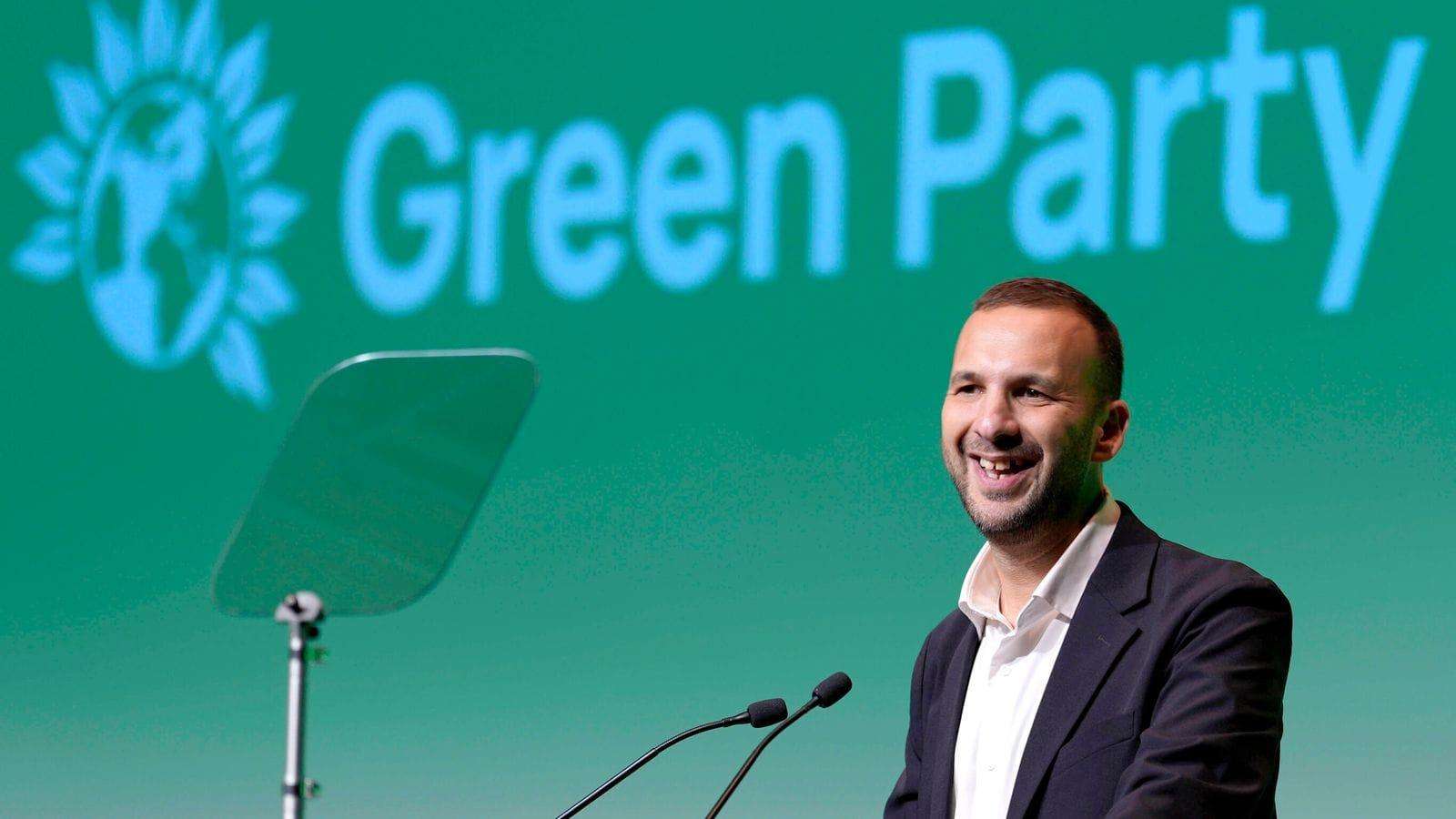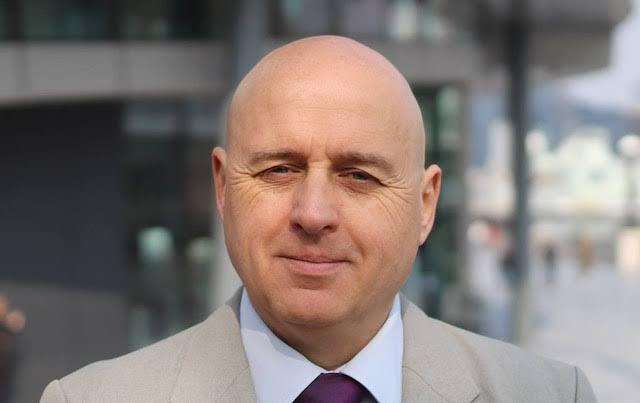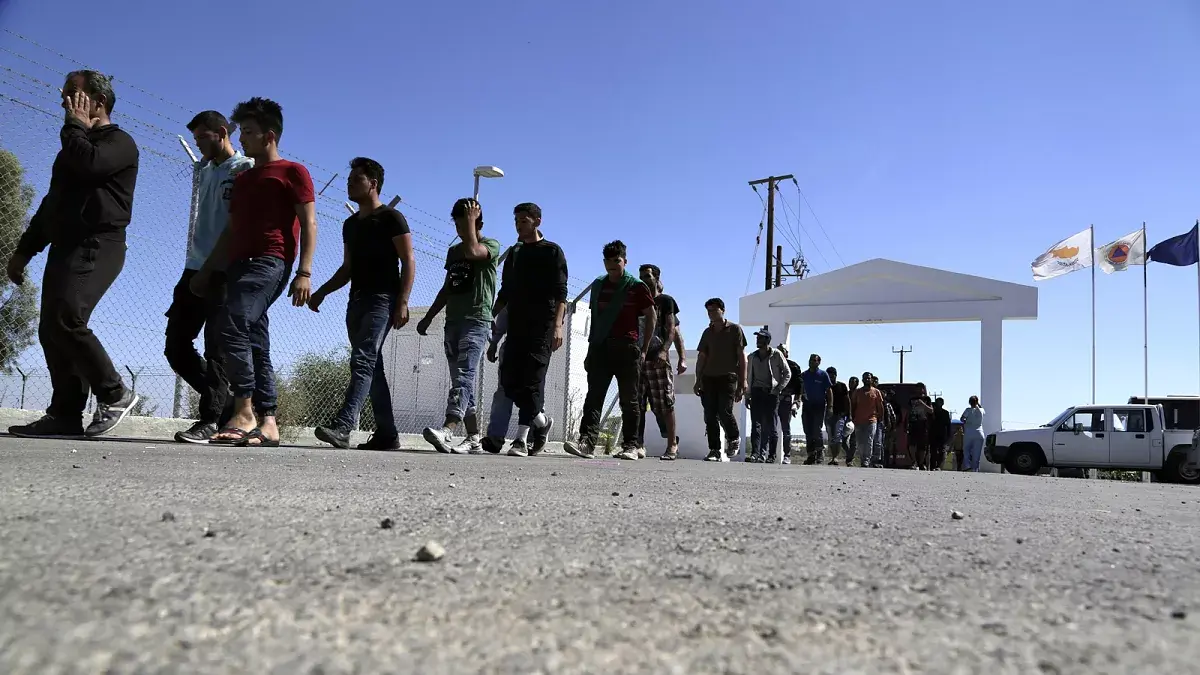The irregular migration to some European Union (EU) countries is a matter of concern and Bangladesh should engage in constructive dialogues with EU countries to encourage safe, organised and regular migration, sources in Dhaka and Brussels said.
Bangladesh missions in Italy, Germany, Spain, France, Portugal, Poland, Greece, Romania and Brussels have no proper documentation of regular and irregular Bangladeshis living in EU countries, sources said.
In the past, Brussels also handed a over a list of illegal and irregular migrants to Bangladesh government and sought Dhaka’s intervention in the matter, sources said.
Sources in Dhaka said EU countries in the last 30 years have sent back several Bangladeshis and urged the Bangladesh government to work on safe and regular migration.
A number of Bangladeshi diplomats who worked in Brussels and other EU countries while talking to the Dazzling Dawn said, “The political governments in Bangladesh in the past hardly took the issue of irregular migration to the EU countries seriously. A Bangladesh diplomat said “The past Awami League government sometimes during the last 15 years remain silent or overlooked the issue of irregular migration to EU countries. The irregular migration squeezed the scope of regular migration of Bangladeshis to the EU countries. The genuine visa seekers will continue to suffer unless the government becomes serious with brussels on this issue”.
The regular migration to the European Union countries, specially to Italy should be encouraged is a matter of concern, and Dhaka will seriously work on Safe, organised and regular migration to Italy.
Meanwhile, the Italian Embassy in Dhaka has announced a series of significant steps to expedite the processing of long-pending visa applications for Bangladeshi citizens following discussions with the foreign ministry here.
In an effort to address the backlog, the consular section has increased its workforce and streamlined its operations, said a Bangladesh's foreign ministry's press release this evening here.
Currently, over 40,000 work-related visa applications are under consideration while the Italy embassy already beginning the process of returning passports to applicants.
The embassy has assured that decisions on at least 20,000 applications will be made and passports returned within the next two months.
However, the embassy emphasized that submitting a work permit, or 'nulla osta', does not guarantee a visa approval, as all documents will undergo thorough verification to prevent fraud and corruption.
In addition to work visas, the number of applications for study, business, tourism, and family visas has also been steadily increasing, said the release.
The embassy further noted that the timeline for visa processing and final decisions are governed by Italian laws and regulations.
Applicants have the right to appeal, but the embassy is bound to follow the applicable legal framework.
The Italy Embassy reiterated its commitment to the foreign ministry to resolve the visa backlog with maximum efficiency and transparency and urging applicants to cooperate throughout the process, said the release.
Italian Ambassador Antonio Alessandro while talking to this correspondent said “
“Bangladesh has made impressive social progress since independence. It has been a success story of the developing world. Italy is proud to have contributed to it through its bilateral and multilateral ODA. Now Bangladesh has to tackle new challenges: adapt to climate change, upgrade its labour standards, prevent irregular flows of migration, among others. Italy wishes to continue to be a partner of Bangladesh in its transformation into a smart and modern state.”
Antonio Alessandro said “The last available figure is 175,000, but we consider around 200,000 with irregulars and recent arrivals. Italy is proud to host the largest Bangladeshi community in continental Europe. It contributes significantly to the well-being of Italy and is also an important source of remittances for Bangladesh with 1.2 billion euro transferred in 2022. The Bangladeshi people living in Italy are workers, entrepreneurs and their families, with long-term prospects of staying which makes them a well-integrated and prosperous community.”
“The Italian “flow decree” has increased the number of foreign workers admitted to Italy in the 2023-2025 period. Bangladesh is the largest group of foreign citizens getting these entry permits. Migration from Bangladesh to Italy is very beneficial to both Countries. Our Governments have to accompany this growing flow to prevent irregular transit schemes and undue costs of mediation,” the Italian diplomat added.
Meanwhile, Italian Ambassador Antonio Alessandro on Wednesday met Chief Adviser Prof Muhammad Yunus and said his country would support Bangladesh's police reforms and work together for formal migration to the country.
Safe, organised and regular migration to Italy, economic and trade cooperation, and police reforms dominated the talks during the meeting held at Chief Adviser’s Office.
"We want to protect Bangladesh migrants. We have to work for better regular migration," Ambassador Alessandro said.
The envoy praised the reform efforts of the Interim Government.
He offered Italian support for police reforms, including training for the security forces.
"Our police do it in several countries," said the Ambassador.
The meeting came a week after the Chief Adviser and Italian Prime Minister Giorgia Meloni held a one-on-one meeting at the UN Headquarters in New York.
During the UN meeting, Professor Yunus called for the large-scale formal migration from Bangladesh to Italy. Meloni said both nations should work hard to cut irregular migration.
The Ambassador hoped that bilateral trade between the two nations would "rebound soon." Currently, the bilateral trade between the two nations is around $2.5 billion.
The Italian Embassy would also hold a movie festival and a ballet soon, he said.
In the margins of the high-level week of the 79th United Nations General Assembly, the President of the Council of Ministers (Prime Minister), Giorgia Meloni expressed Italy’s support for the reform process in Bangladesh and the main goal of improving the population’s social and economic conditions.
The meeting in New York also provided an opportunity to discuss migration, with the intention being stated to strengthen cooperation on this issue, in particular by relaunching negotiations to complete a bilateral agreement to combat irregular migration flows, establish closer cooperation on returns and, at the same time, support legal paths.
Meanwhile, Italy would support Bangladesh's police reforms and work together for formal migration to the country, Italian ambassador in Dhaka Antonio Alessandro said last week.
The ambassador made the comments when he paid a courtesy call on Chief Adviser Professor Dr Muhammad Yunus at the latter's Tejgaon office here.
Safe, organised and regular migration to Italy, economic and trade cooperation, and police reforms dominated the talks during the meeting.
The meeting came a week after the Chief Adviser and Italian Prime Minister Giorgia Meloni held a one-on-one meeting at the UN Headquarters in New York.
During the UN meeting, Prof Yunus called for the large-scale formal migration from Bangladesh to Italy. Meloni said both nations should work hard to cut irregular migration.
"We want to protect Bangladesh migrants. We have to work for better regular migration," Ambassador Alessandro said.
The Italian ambassador praised the reform efforts of the Interim Government. He offered Italian support for police reforms, including training for the security forces.
"Our police do it in several countries," he said.
The ambassador hoped that bilateral trade between the two nations would "rebound soon." Currently, the bilateral trade between the two nations is around $2.5 billion, he said.
The Italian Embassy would also hold a movie festival and a ballet soon, the ambassador said.
Meanwhile, Muhammad Yunus, chief adviser to the interim government of Bangladesh, has held a meeting with Italian Prime Minister Giorgia Meloni during his visit to New York, according to bdnews24.com.
The meeting was held on the sidelines of the United Nations General Assembly, the Chief Advisor’s Press Wing said.
During the meeting, Yunus presented the prime ministers with a photo book called ‘The Art of Triumph’, a collection of photographs of graffiti made by the Anti-discrimination Student Movement that toppled the Sheikh Hasina-led government.
The chief advisor also exchanged greetings with former US president Bill Clinton on stage at the Clinton Global Initiative in New York.
Yunus spent a busy day on the sidelines of the UNGA on Tuesday, also meeting with Kristalina Georgieva, the managing director of the International Monetary Fund, the Chief Advisor’s Press Wing said.
As the population in European countries is decreasing, Europe's "survival" depends on migration, Volker Türk, the United Nations High Commissioner for Human Rights.
“Most of the nurses in the hospital my parents go to in Germany have a migration background. Most of the people who work in care have a migration background, and there aren’t enough of them, in this sector or in others. In Europe, we’re going to have to get back to rationality : we have to look at demographics for what they are, and realise that it’s in our best interest to have a discussion about migration, and recognise that we’re not going to survive without it ,” said Volker Türk
In 2022, almost 3.7 million new residence permits were issued in European Union (EU) Member States – not including the influx from Ukraine – compared to 2.9 million in 2021 and three million in 2019. There were 875,000 new asylum applications, still not counting Ukrainian applicants, Eurostat said, up 52% compared to 2021 and 38% compared to 2019.
As of 1 January 2022, there were 23.8 million non-EU citizens residing in the EU, representing 5.3% of the 27-nation bloc’s 447 million inhabitants. Three-quarters of them live in Germany, Spain, France and Italy.
If people with EU citizenship are included, there are now 38 million people born outside the EU living in it, or 8.5% of the population.
If EU citizens are added, who themselves migrate between their different countries, the share of all foreign nationals living in the bloc rises to 12.5%. This is lower than in most high-income countries such as Switzerland (30.2% non-nationals), Australia (29.2%), Iceland (20.1%), Norway (16.1%) or the United States (13.5%).
In 2021, 2.26 million people migrated to the EU from another continent, according to the European Commission. This is in contrast to the 2.9 million residence permits issued in the same year, administrative procedures that also reflect previous arrivals.
This is lower than the 2.5 million people who migrated from the EU in the same year, either to go elsewhere in the world (1.12 million) or to change countries within the EU’s borders (1.4 million).
The International Organization for Migration (IOM) has revealed some 20,000 persons have died or disappeared in the Central and Eastern Mediterranean during the last 20 years.
According to the IOM’s Missing Migrants Project, the annual number of migrant deaths and disappearances in all the Mediterranean jumped from 2,048 in 2021, to 2,411 in 2022, and to 3,041 by the end of 2023.
Italy aims to strengthen its role as a bridge between Europe and Africa through a model of cooperation, development, and equal partnership. It will present its plan for a platform of shared ideas for discussion with partners during the conference.
_3.jpg)
_4.jpg)






.svg)



